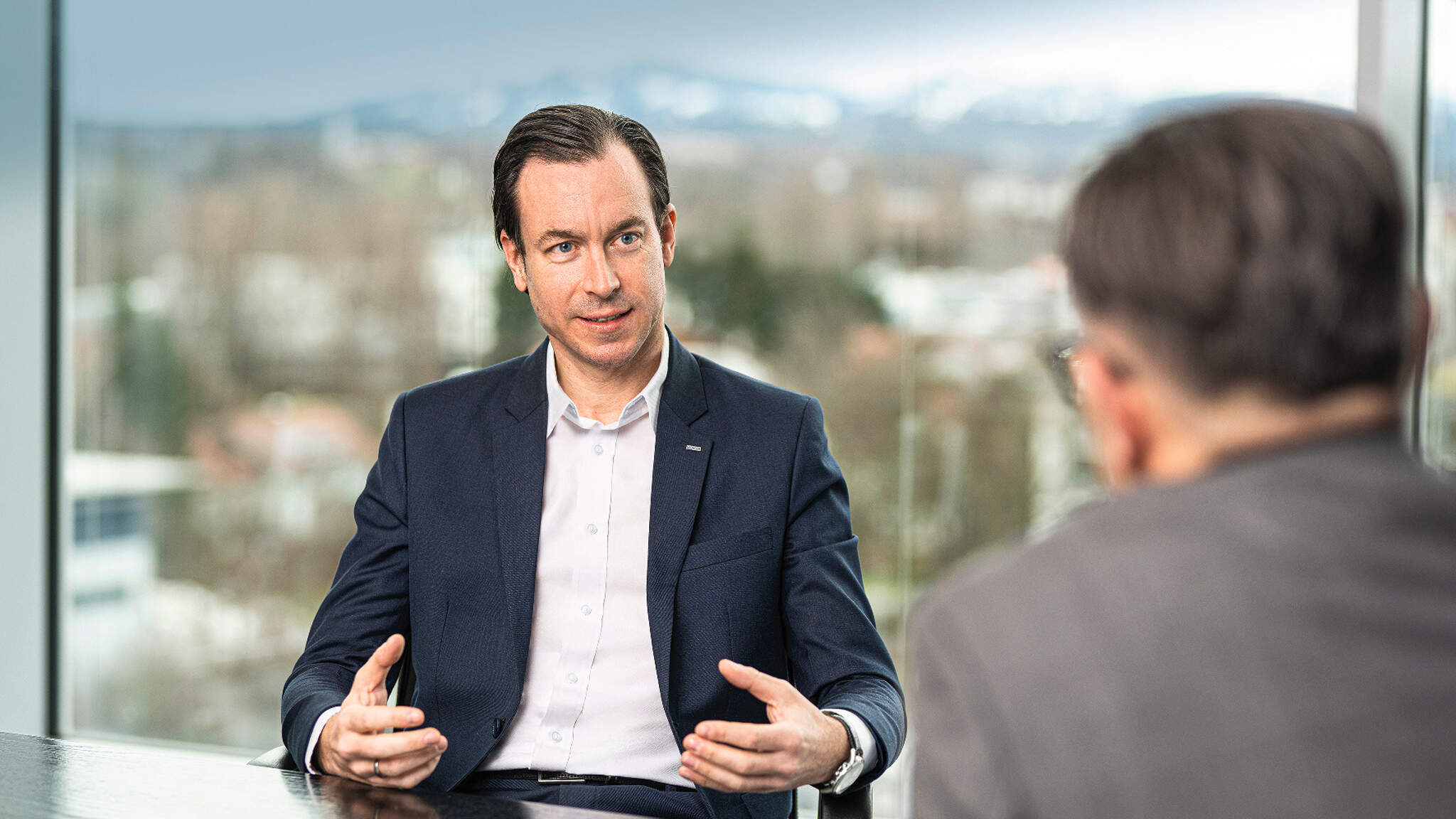“We’re pursuing a clear goal”

Dr. Burger, you hold a doctorate in business administration. When you were at university, did you think your career path would steer you into logistics?
Burger: No, definitely not at that point. But I’ve always been fascinated by complex networks and companies that are pursuing change processes. When it comes to implementing standards designed to master complexity and optimize processes on a global scale, logistics is the supreme discipline. That’s what I love about this industry.How did you first cross paths with DACHSER?
The contact came through Dr. Dieter Truxius, DACHSER’s former CFO. He introduced me to Bernhard Simon, who is currently Chairman of the Supervisory Board, but who was then still CEO. I was immediately taken with the company’s extremely long-term mindset, because I like to work toward achieving a strategic goal. Another major selling point was the culture based on values with people at its center. That impressed me then, and it remains one of the key characteristics that makes DACHSER unique. Moreover, I found DACHSER’s growth and its development potential appealing even back then—and subsequent years have borne that out: when I joined, DACHSER had a workforce of between 17,000 and 18,000; today, it’s around 34,000.What would you say is really special about logistics?
First, I’d say it’s the complexity. Every supply chain always involves a great many players. For example, transporting a pallet from Hong Kong to Kempten is a massively complex business. And it gets even more challenging when you remember that customers want to receive their goods on time so they can meet the demands of their own supply chains.The second thing is how international the industry is. Air and sea freight in particular is a global affair that involves numerous different countries, economies, and cultures. You could say that logistics is the lifeblood of everything that happens in the world. During the pandemic, we saw that when supply chains snap, supermarkets are left empty in next to no time. Things suddenly become harder to get hold of, and production lines grind to a halt, which in turn sends shockwaves through the economy. This all served to highlight how important it is for logistics to work. The challenge facing our industry is to match this complexity, internationality, and difficulty with seamless processes that are as standardized as we can make them.

Your DACHSER career has taken you through positions in finance and strategy followed by corporate governance. When did you realize that your future lay in ASL?
My topic management work for the Executive Board got me heavily involved in a number of focus projects. One of these, which began in 2015, concerned the further development and transformation of DACHSER’s air and sea freight business. My role at the time involved supporting the standardization of processes and the development of an ASL business model. That’s how I got such a thorough grounding in these areas.You’re noted as saying that mistakes are an unavoidable part of the operational side of logistics. How do you deal with this reality?
Like always in life, what matters is that we learn from our mistakes and draw the right conclusions. For example, I started as Managing Director ASL EMEA during the COVID-19 pandemic, and at that time we were having to analyze things and make decisions from one day to the next, sometimes from hour to hour. That’s how fast business conditions were changing. Making the wrong call every now and then is inevitable. The good thing about the fast pace of our day-to-day operations is that you can rectify your mistakes quickly. Many mistakes can be prevented in the first place by ensuring that we’re on the right track—always asking ourselves what our long-term goal is, and what we can do now to help us get there. For me, learning from mistakes is an integral part of the continuous improvement process.What does ASL expect of you?
ASL is going through a major transformation, and as we know, it’s definitely facing a tough situation. At the moment, its largely trading- based approach and profit-center mindset are pushing the business model to its natural limits. We’re now looking to transition toward an integrated, network-oriented approach across business fields—in other words, Global Groupage. This is something we embrace because it’s the next step in expanding our business model. By dovetailing our intercontinental transports with our high-performance European overland transports, we’re creating a comprehensive, global groupage solution from door to door. This is giving rise to unique integrated logistics solutions for our customers. People are meeting this with a considerable openness and willingness to change.